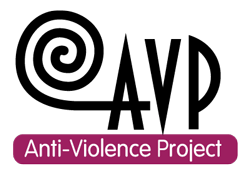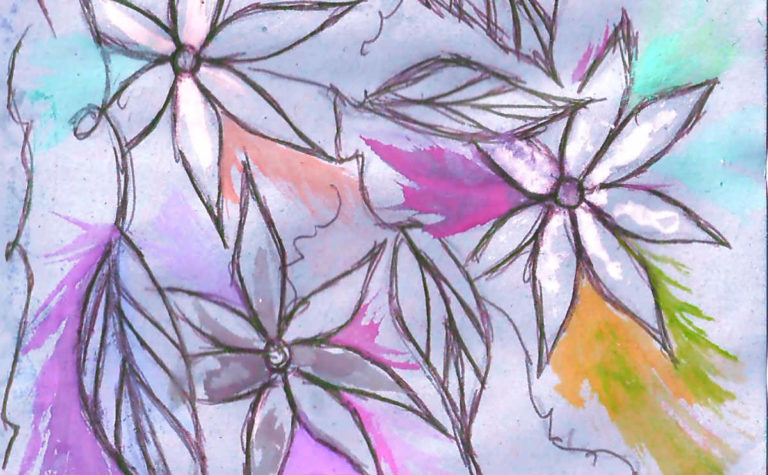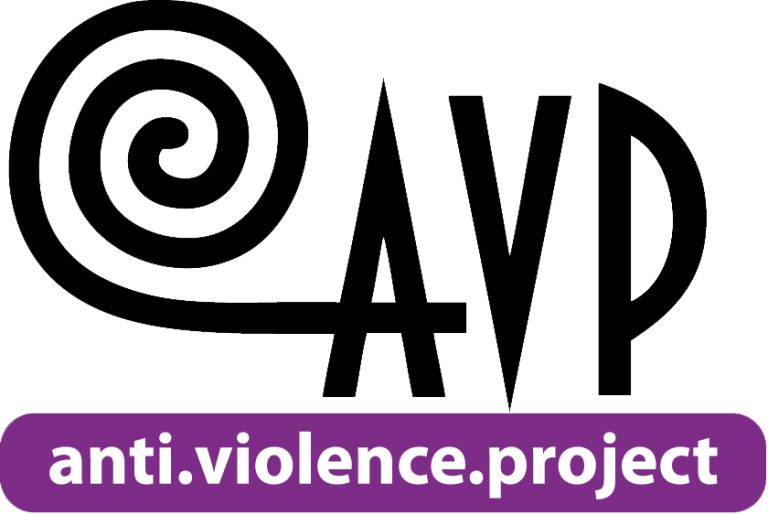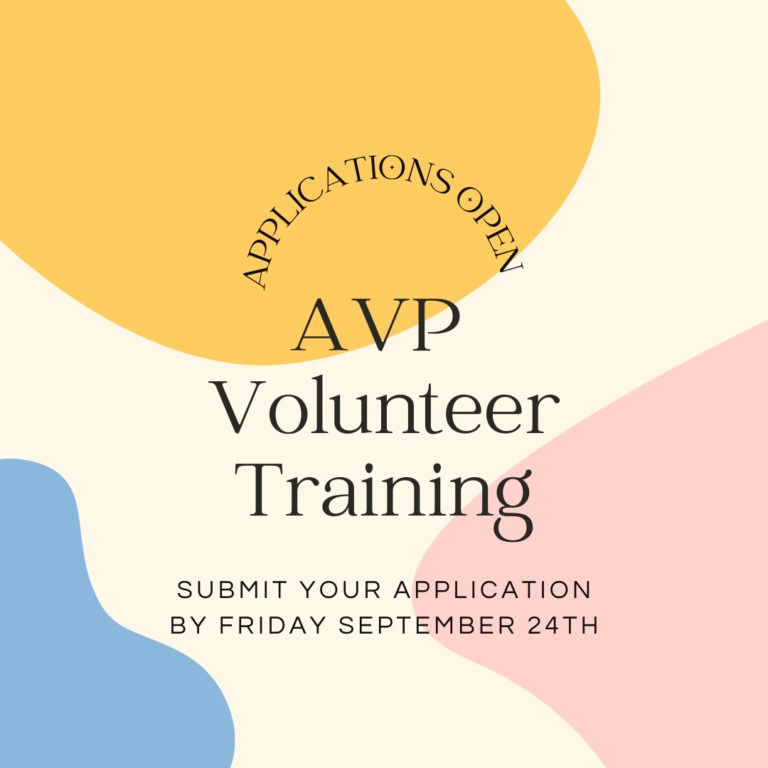Having the Difficult (and Necessary) Conversations: Talking to Kids about Colonization, Colonialism, and Decolonization (as a White Settler Parent)
By an AVP volunteer.
Disclaimer: This was written by a white settler and is intended to be read and reflected on by other white settlers. While this may be read by folks who do not fit into this category, it is important to note that the “we” I am implicating is specifically white settlers across Turtle Island.
Discussions of colonization and colonialism are often deemed too complex to discuss with children, but what does it mean for a child to grow up in a society that has been fundamentally shaped by these systems and not be given the opportunity to recognize the existence of ongoing colonization?
I was in my first year of my undergraduate degree when I first heard a territory acknowledgement. Though I had previously learned about colonialism in public school, it was framed as a historical event that had minimal connection to the society we live in today. Ongoing colonization was never discussed. I was never asked to critically think about the territory I grew up on. I was never encouraged to learn about this land I lived on and who it belonged to. I was not provided with the words or concepts I required in order to understand myself as a settler.
Sitting in a first-year gender studies class in my undergraduate degree, I was re-invited to think about colonialism. This time, though, ongoing colonization was taught. Being finally confronted with this lesson in a gender studies course hit me like a ton of bricks because it completely shifted my worldview. I was asked to completely rethink the ways I understood Canada as a country. I began to reconceptualize my relationship to the land. I embarked on a journey of learning about the territories I had lived on throughout my life. I finally was confronted with the reality of whose land I had been living on as an uninvited settler for two decades.
I struggled to fathom how I had spent my entire life being allowed to live in ignorance of settler colonialism. I was starkly aware of the existence of racism, heterosexism, cissexism, ableism, classism, and other systems of oppression, but I had failed to understand how all of these systems are intricately intertwined with colonialism and ongoing colonization. Looking back now, I know this education came years too late. I should have grown up knowing that I live on stolen land and that this country is built upon a foundation of colonialism, oppression, genocide, and non-consent, which continues to this day.
White Settlers Raising Critical Thinkers
When I think about having children, one of the most important conversations I imagine myself having is about the land we live on. Teaching my child(ren) about colonization, their existence as a (white) settler, how to critically think about their relationship to the land, this country’s history, and moving forward with decolonization is imperative if they are to grow into the type of human I hope they eventually become.
Something I’ve realized over years of doing social justice-oriented work is that sometimes it’s easier for people to talk about colonialism than colonization. Even in recounting the horrific history of colonialism, it is often less uncomfortable to talk about historical events than current events because we can separate ourselves from the past (or at least try to). We talk about history, walk through the terrors of the past, but remind ourselves and young people that the past is the past and that things got better. This is exactly how I learned about colonialism in my public school education. What is truly challenging is to recognize the ways in which these horrors haven’t gone away and things haven’t necessarily improved – instead, these colonial powers have simply shifted, adapted, reinvented, and re-established themselves in other ways. The pervasiveness of ongoing colonization continues to govern the society we live in. And we have the responsibility to teach our children about this.
There is a tendency of white parents to avoid having hard conversations with children about topics that they feel don’t directly impact them. White parents often don’t discuss racism with children unless their child is confronted with it, maybe through a news story or witnessing displays of racism at school or in the public. But our teaching about racism, colonization, and other systems of oppression cannot start and end only in response to these instances. While these moments can provide us with easy entry points into difficult conversations and lead to fruitful discussions, we must centre critical conversations about our world throughout the lives of our children to ensure they are provided with the ability to recognize moments of oppression and have the tools to resist.
Strategies and Entry points into Discussions of Colonialism, Colonization, and Decolonization
As someone who is not (yet) a parent, it is difficult for me to imagine exactly how these conversations will go. I can, though, recognize that these discussions will be hard. Kids have questions. They are curious. They are concerned. There is no flawless “How-To” guide that can facilitate these conversations with children for us. Sarah Hunt and Cindy Holmes write about the importance of white settler parents raising “age-appropriate questions that disrupt the dominant White settler mythology about Canada and what this means for . . . White settlers today” (164).
Using this as a guiding goal as parents, we can begin to actively search for entry points into these conversations instead of waiting for a child to bring it up.
One way these moments can happen is through things happening in the world around us. For example, the release of the Truth and Reconciliation Commission’s report provided people with the opportunity to talk to their children and reconciliation and decolonization. In the wake of the release of the final report of the National Inquiry into Missing and Murdered Indigenous Women and Girls (MMIWG), talk to your children about the overwhelming rates of violence against Indigenous women, girls, and 2SLGBTQQIA folks. Talk to your child about the impacts of ongoing colonization, and how this affects these rates of violence. I’m not necessarily suggesting you read this report with your child before bedtime. Instead, what I’m arguing is that these events happening around us are all opportunities for us to teach young people about the world that they live in, and to critically engage them in these events.
Every year, we are presented with a prime opportunity to have conversations with young people about the history of Canada and colonialism. Before you run off to walk fireworks on July 1st with your children to celebrate Canada Day, have a conversation with your children about what the day is truly celebrating. These conversations can also be sparked by other holidays, like Thanksgiving, by providing your children the opportunity to critically examine the dominant narrative surrounding these days.
Take a walk with your child and teach them about the land they live on. Teach them about the people who originally lived and continue to live in this land. Teach your children about how Indigenous people have cared for these lands long before your ancestors ever arrived on these territories, and how these people continue to care for these lands.
The potential educational moments are endless: Take your child to a protest and support Indigenous activists. Critically discuss the ways in which Indigenous resistance is framed by the media. Go to an art exhibit showcasing Indigenous artists. When talking about gender, share with your child the colonial roots of the gender binary. When teaching your children about your family, discuss your ancestry and how you came to be settlers on this land. Talk about this history of your settler ancestors, and their role in colonialism.
If your child is not at an age where they would have the capacity to comprehend those conversations, that does not mean that it’s too early to begin this education. Meet your child at their level. We can create moments of teaching and learning by gathering resources that will be appropriate for children, through finding Indigenous children’s books to read to our kids.
Our children’s learning journey does not stop with the conversations we have with them about colonization, but the education can begin here. These conversations won’t be perfect. If you’re doing it right, you’ll probably feel uncomfortable. But this is good. These conversations are hard and messy, but fundamental. We need to make space for messiness and not expect ourselves to have all of the answers. Making space for learning allows you to go on this educational journey with your children, as you read together, listen together, and learn from others together.
On Accountability
Approaching these conversations from a place of accountability is, in my mind, the best place to start. When I talk about accountability, I’m referring to a way of being responsible for our words, our actions, to other people, and ultimately holding ourselves responsible for the harm that we may cause, regardless of our intention.
It’s imperative for us to be accountable to our knowledge (or lack thereof). This is where and how we make space for the messiness. I do not have all the answers and I doubt you do either. This is okay. In these moments of messiness and not knowing, we create space for more learning and growing, which we can share with young people. Watch an educational video together. Go to a workshop or a public event on the topic. Read a book together and find the answers you’re searching for. Instead of creating a hierarchy between you as the teacher and your child as the learner, learn together.
Mia Mingus has taught me an immense amount about accountability, and her work is something that I always go back to when I have these conversations. I hope that her words also help you in striving to do better, to be better, and to be accountable in the especially tough moments:
What if accountability wasn’t scary? It will never be easy or comfortable, but what if it wasn’t scary? What if our own accountability wasn’t something we ran from, but something we ran towards and desired, appreciated, held as sacred?
What if we cherished opportunities to take accountability as precious opportunity to practice liberation? To practice love?
Accountability is not a destination, it is a skill we can build and practice. It is an art, a craft, an alchemy we can learn how to wield, just as we have learned how to wield hurt and shame and fear. If accountability is a skill we value, then we must make room and make commitments to practice it ourselves each day, each week, each year. We can start with our everyday relationships and those closest to us: our families, our friends, our partners, our coworkers, the earth.
– Mia Mingus, “Dreaming Accountability: Dreaming A Returning To Ourselves and Each Other”
Centre accountability in your teaching, and centre accountability in your identity as a white settler. Like Mia suggests, learn to hold moments of accountability as sacred, as you build and practice accountability.
Recognizing Our Own Learning Journeys
It’s imperative to recognize that having these discussions with our children and other young people requires us to have a working knowledge about these concepts. Each person’s knowledge is different, as our education often failed to provide us the guided opportunities to critically examine these concepts. Thankfully, learning is a journey that does not stop when we leave a school environment. There are endless resources online that can facilitate this learning, alongside people in your communities who you can learn from (with some linked below).
My ongoing learning about these topics has been facilitated and supported by a myriad of people who have devoted immense amounts of time and energy to doing this education through their writing, speaking, art, poetry, and activism. I can attribute the vast majority of my learning about these topics to Indigenous activists, writers, scholars, including the work of Eve Tuck, Gwen Benaway, Alicia Elliot, Selena Mills, Leanne Betasamosake Simpson, and countless others. This education was further facilitated by settlers who have taught me about what it means to practice decolonization, which they themselves learned directly from Indigenous folks. I have endless gratitude for all of the folks whose work I have interacted with, and recognize that without their generous knowledge sharing, I would not be the person that I am today.
Moving Forward and Continuing to Ask the Big Questions
In continuing on this journey, I encourage you to ask how we can raise children that are aware and critical of the systems of oppression which shape our society. How can we raise white children that use their privilege to uplift Indigenous resistance and resist colonization and oppression? This begins with the conversations we have with our kids. It is our responsibility as white settlers to raise our children to be better than the generation before them. This begins with how we initiate and frame conversations about the world we live in and what we do as humans to actively make it better.
Further Reading
Cory Silverberg, “Why White Parents Need to Talk to Their Kids About Racism”
Dakshana Bascaramurty, “‘A Horrible History’: Four Indigenous Views on Canada 150”
Doreen Nicoll, “Forget Canada Day, Prioritize Reconcili-action and Indigenous Culture”
Margaret A. Hagerman, “Why White Parents Need to Do More Than Talk to Their Kids About Racism”
Mia Mingus, “Dreaming Accountability: Dreaming A Returning To Ourselves and Each Other”
Ryan McMahon, “Why I Won’t Be Attending Canada’s 150th Birthday Party”
Sarah Hunt and Cindy Holmes, “Everyday Decolonization: Living a Decolonizing Queer Politics”
Selena Mills, “How We’re Teaching Indigenous History To Our Kids”
Selena Mills, “Sharing the Message of Truth and Reconciliation With Your Kids”
Selena Mills, “10 Beautiful Indigenous Children’s Books to Add to Your Library”







